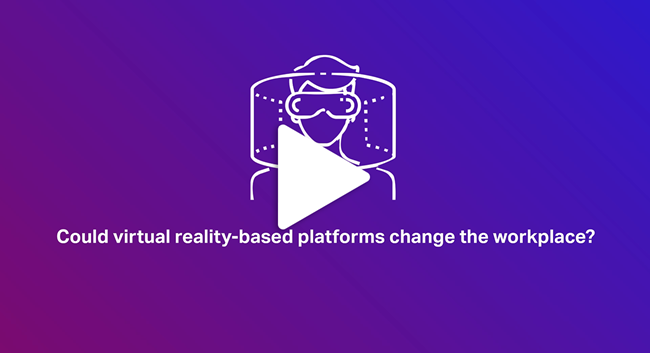79% of Middle East Business Pros Are Open to Metaverse Meetings
A new study commissioned by Ciena (NYSE: CIEN) found that 79% of Middle East business professionals are ready to use virtual reality-based platforms, such as the metaverse, for work, in place of current video conferencing options. On top of this, a whopping 94% of respondents in the region would feel comfortable conducting formal work meetings, like with HR, in a virtual reality environment.
The survey—which polled views among 15,000 respondents across the Middle East, North America, Europe, Latin America and Asia—also uncovered some regional differences. According to the study, 82% of business professionals in the Middle East feel comfortable about their company introducing VR in work processes. When asked about the drawbacks of using current virtual collaboration tools, one-third of UAE respondents worry that they will not be able to read in-person emotions. And, when it comes to immersive virtual platforms, 27% of respondents in KSA are concerned about security, while 22% of those surveyed in Egypt said that unreliable network connectivity may hamper their ability to work in the metaverse.
“There is a growing appetite for more immersive collaboration tools like the metaverse in the Middle East,” commented Azz-Eddine Mansouri, General Manager Middle East, Ciena. “However, network reliability and security are paramount for these new work applications to thrive.”
Middle East respondents also expressed an interest in using these new immersive platforms for consumer-centric tasks. For example, shopping is one of the motivators in countries such as UAE (57%) and KSA (47%). In Egypt, 51% respondents found the metaverse more suitable for work.

When it comes to selecting their avatar for the virtual world, 29% of business professionals would choose an avatar that reflects their real-world selves, 21% would take on a different image depending on the setting and meeting purpose and 20% would choose an avatar that represents a more idealistic version of themselves. Only 15% of respondents would pick a pop culture figure as their avatar.
Despite growing interest among working professionals, 31% of respondents believe network reliability is preventing businesses from aggressively moving forward, while 34% feel the technology is not readily available. Even with these concerns, 82% of professionals can see the metaverse becoming part of existing work practices. And 40% think their business will move away from the traditional/static collaboration environment to a more immersive and virtual reality-based environment within the next two years.
Mansouri concluded: “Given the Middle East region has some of the world’s highest rates of tech adoption and digital penetration, virtual reality worlds will start to play a bigger role in the way we work and interact. The success of these virtual platforms depends heavily on having an underlying infrastructure that offers low latency and supports higher bandwidths.”
Notes to Editors
The research surveyed a total of 15,000 business professionals, including 1,000 professionals within each of the following countries/regions: UK, Germany, Norway, Middle East (including UAE, KSA, Egypt) Australia, Denmark, Japan, Colombia, India, U.S., Philippines, Mexico, Brazil, Indonesia and Singapore. This was conducted by Censuswide on behalf of Ciena in June 2022.
Note to Ciena Investors
You are encouraged to review the Investors section of our website, where we routinely post press releases, SEC filings, recent news, financial results, and other announcements. From time to time we exclusively post material information to this website along with other disclosure channels that we use. This press release contains certain forward-looking statements that are based on our current expectations, forecasts, information and assumptions. These statements involve inherent risks and uncertainties. Actual results or outcomes may differ materially from those stated or implied, because of risks and uncertainties, including those detailed in our most recent annual and quarterly reports filed with the SEC. Forward-looking statements include statements regarding our expectations, beliefs, intentions or strategies and can be identified by words such as "anticipate," "believe," "could," "estimate," "expect," "intend," "may," "should," "will," and "would" or similar words. Ciena assumes no obligation to update the information included in this press release, whether as a result of new information, future events or otherwise.